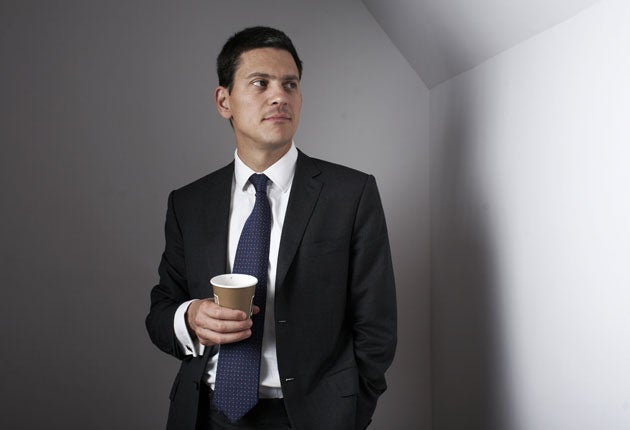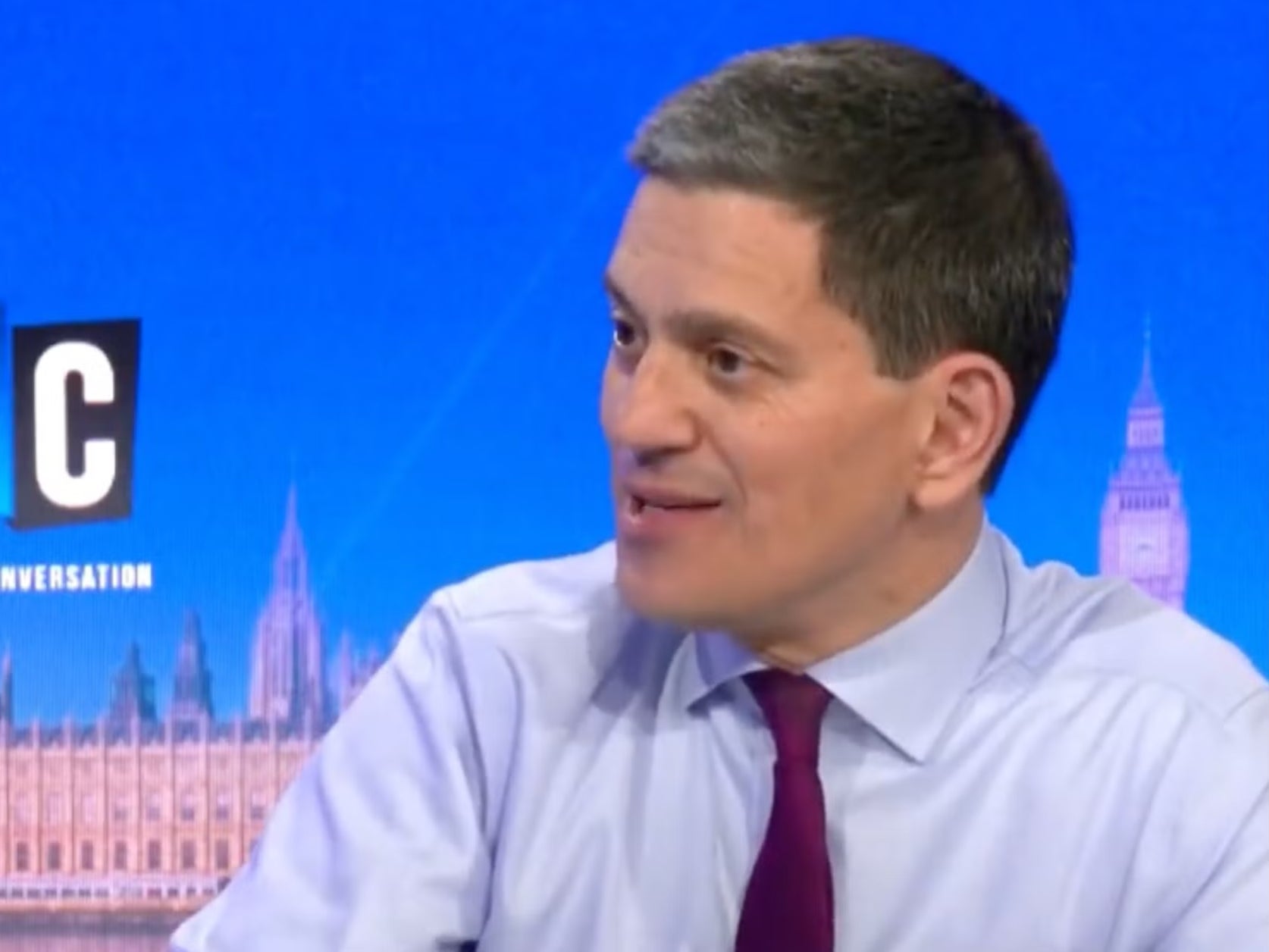Britain ‘has not stepped up’ to help record numbers needing aid worldwide, says David Miliband
Lack of aid spending is ‘a massive problem’ says former foreign secretary amid Labour comeback rumours

Your support helps us to tell the story
From reproductive rights to climate change to Big Tech, The Independent is on the ground when the story is developing. Whether it's investigating the financials of Elon Musk's pro-Trump PAC or producing our latest documentary, 'The A Word', which shines a light on the American women fighting for reproductive rights, we know how important it is to parse out the facts from the messaging.
At such a critical moment in US history, we need reporters on the ground. Your donation allows us to keep sending journalists to speak to both sides of the story.
The Independent is trusted by Americans across the entire political spectrum. And unlike many other quality news outlets, we choose not to lock Americans out of our reporting and analysis with paywalls. We believe quality journalism should be available to everyone, paid for by those who can afford it.
Your support makes all the difference.Britain has failed to help alleviate the worldwide humanitarian crisis caused by war in Ukraine, climate emergency and the Covid pandemic, according to David Miliband.
International aid has fallen while the number of people in need of emergency assistance has risen drastically to 339 million around the world, the head of the International Rescue Committee said.
The United States has “shown leadership” with actions such as an additional $411m allocated to Somalia, one of the worst hit countries, the former foreign secretary told The Independent.
“But the UK unfortunately has not stepped up to the plate,” he added. “And that is a great pity, because governments in the past had reacted swiftly and effectively on humanitarian issues, not just the Labour government I was part of, but the Tories as well. In 2016 the UK played a key role in staving off famine in East Africa, but today the UK is absent.
“The UK says it is in a difficult position, and it’s true that there are serious domestic challenges. But the UK economy is worth around $2.5 trillion a year; what is needed for adequate humanitarian funding, to address the shortfall, is very small compared to that.
“Of course prices have risen – food by 10 or 15 per cent – but in other parts of the world it has gone up much more, in East Africa by 40 per cent for example.”
It is not just Britain that is failing to do enough to confront the crisis, said Mr Milliband.
“The EU could and should do more, they are lagging behind as well; and so are the Gulf states, despite them doing quite well out of the energy prices after the start of the Ukraine war,” he said.
Vladimir Putin’s invasion of Ukraine has led to a major humanitarian crisis, he added. “We look at what has happened there – 17,000 civilian casualties, more than 14 million displaced, civilian targets being hit increasingly, and significant economic damage that will take a generation to rebuild.”
Emergency appeals for Ukraine have been well-funded from donations in the West. But similar efforts are needed for other parts of the world, said Mr Milliband, to address hardship caused by the conflict.
“There have been unprecedented levels of support in respect of humanitarian support inside the country and in respect of the support for refugees, that is good news and an important and positive thing,” said Mr Milliband.
“However, the underfunding of international humanitarian effort is obviously a massive problem. We don’t call for the level of Ukraine aid to be reduced to the international level: we call for the international response to be raised to comparable levels to that of Ukraine.”
The International Rescue Committee’s emergency watchlist for 2023 shows that while 81 million people worldwide needed humanitarian assistance in 2014, the number today is 339 million. Funding to tackle this has lagged behind, with a shortfall of $27bn this year.

While he was chancellor, Rishi Sunak cut Britain’s overseas development aid from 0.7 per cent to 0.5 per cent of GDP, describing it as a temporary necessity to tackle the cost of the pandemic. Jeremy Hunt kept the reduction in place in his November Budget and it appears highly unlikely that the aid cut will be restored in the near future.
Mr Milliband has been critical of what he sees as the lack of leadership by Britain on humanitarian aid and other issues.
Last month, in a speech at Chatham House in London, Mr Milliband said Britain’s global role had been “seriously diminished” in both reality and perception since he was foreign secretary.
There have been reports that Mr Milliband, who lost the Labour leadership contest to brother Ed in 2010 and stood down as an MP, may be preparing for a political comeback in Britain. He has praised Sir Keir Starmer and said he is enthusiastic about Labour’s current leadership under him. He told Andrew Marr on LBC that “ it has not been decided yet” if he would return to the Commons.
He continued to stick to that line on Tuesday. “I keep on being asked about this, but really no decision has been made yet, I want to focus on what I’m doing,” he told The Independent.



Join our commenting forum
Join thought-provoking conversations, follow other Independent readers and see their replies
Comments